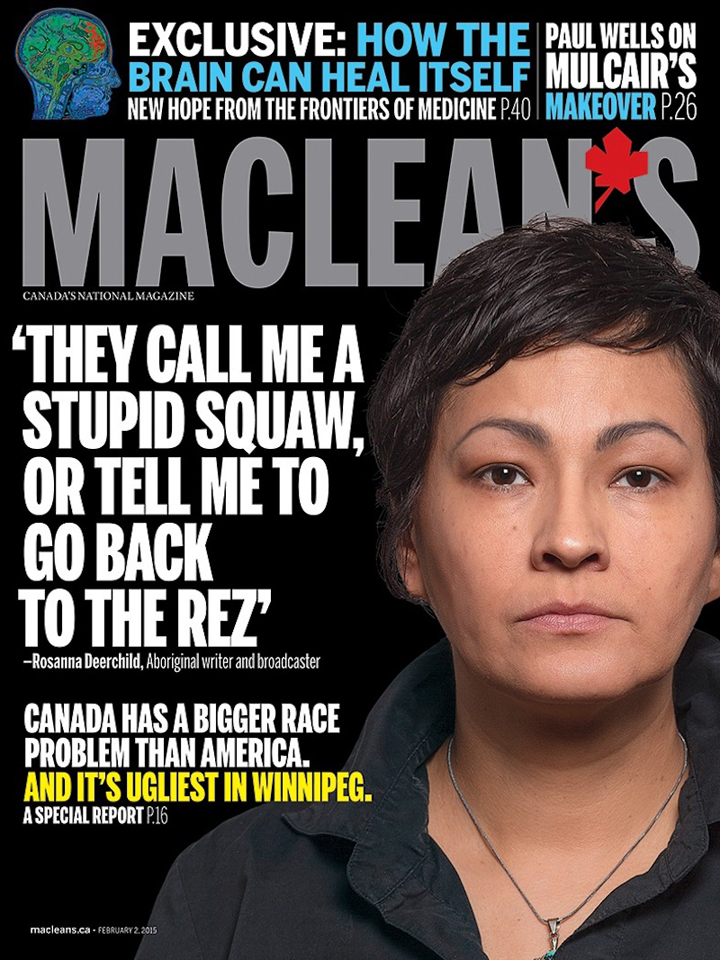WINNIPEG — It’s been nearly a year since a magazine gave Winnipeg its now notorious designation as the country’s most racist city.

On Jan. 22, 2015 Maclean’s magazine came out with a scathing multi-page expose on Winnipeg painting the city in a negative light.
READ MORE: Response continues after Winnipeg dubbed most racist city
It featured heart-wrenching stories from a dozen different aboriginal Manitobans who had all faced an uphill battle against racism.
More importantly for some people, it opened up a dialogue about what could be done to improve the city.
“I’ve seen a large improvement of awareness in people’s attitudes,” said activist Michael Champagne. “But from a system policy side, I have not seen any changes I would consider meaningful. We have to take a look at the way our services are delivered and we have to take a look between different systems that continue to perpetrate poor conditions.”
Champagne holds weekly “Meet Me at the Bell Tower” events where Winnipeggers join together to discuss the indigenous community and what changes they want to see happen. Starting last month, Champagne also created the 13 Fires conversation series.
“Every month, in a different location, Winnipeggers can come together and identify solutions (to things) we feel are perpetuating the racism in our communities,” he said. Each month has a different theme, such as poverty or health.
READ MORE: Racial inclusion summit wraps up in Winnipeg
- Posters promoting ‘Steal From Loblaws Day’ are circulating. How did we get here?
- Video shows Ontario police sharing Trudeau’s location with protester, investigation launched
- Canadian food banks are on the brink: ‘This is not a sustainable situation’
- Solar eclipse eye damage: More than 160 cases reported in Ontario, Quebec
The article also prompted the beginning of change within City Hall. Winnipeg’s mayor, Brian Bowman, formed an Indigenous Advisory Committee and held a one-day national racism summit to bring about discussions of change.
“I just re-read the article again a few days ago. It’s a tough read. They are heart wrenching stories articled, but what has been heart warming is the response,” Mayor Brian Bowman said. “It really is that shift in tone and the discussion. The tone and the dialogue, and more importantly, the actions that are occurring in Winnipeg are moving solidly in the right direction.”
READ MORE: Sitting down with the mayor to talk about the city’s first summit on racism
While there has been some work done towards changing perceptions, Bowman admits there is still a long way to go… and a professor of indigenous studies agrees.
“The only thing that’s really changed in the city is the will,” said Dr. Niigaan Sinclair, a professor and head of the native studies department at the University of Manitoba. “There has been a lot more interest by non-indigenous people to engage themselves in the issue.”
While the city has made efforts to better understand the root issues of racism, Sinclair said the most encouraging promise of change came from the federal level with the release of the 94 recommendations from the Truth and Reconciliation Commission.
“I’ve seen much more change in that direction than from any magazine declaring racism is alive and well,” said Sinclair. “But anything that raises awareness around the issue is a good thing. Anything that provokes dialogue is a good thing. Anything that provokes action in the future is a good thing.”
Sinclair said there needs to be an institutional change to engage the forces that produce racism.
“While it may be discomforting at times that racism is alive and well here in Winnipeg… it’s also important to look next door to your neighbour and say ‘what can we do?”




Comments